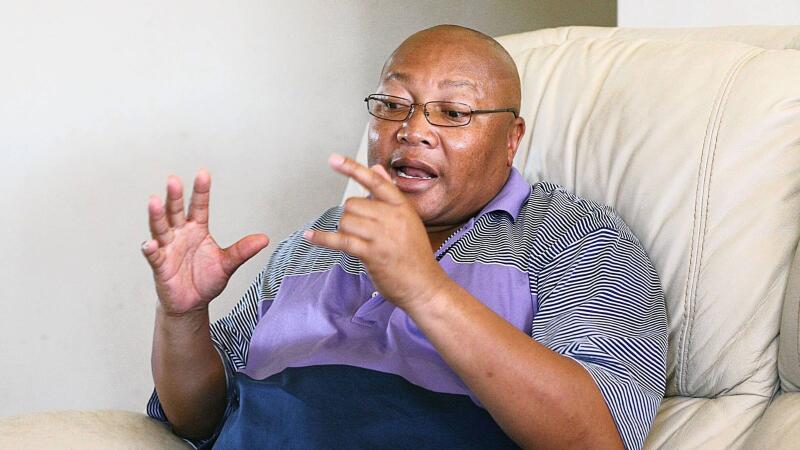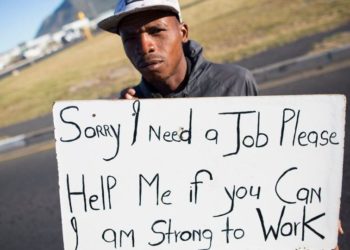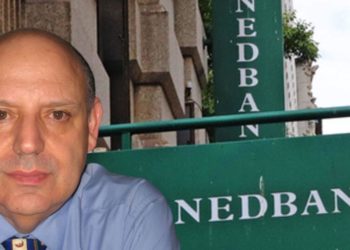All provinces produce hitmen but KZN is on another level … it’s common to find a hitman from KZN to go and kill in Cape Town and come back to KZN
AS THE number of people killed in sporadic violent crimes across the country surges rapidly within the first two months of 2023, a prominent traditional leader in KwaZulu-Natal (KZN) Midlands, Inkosi Simphiwe Zuma, is still shocked and grieving the ruthless murder of his traditional prime minister.
Inkosi Zuma, who is a close acquaintance of former president Jacob Zuma, is grieving the death of the head of his izinduna Qalokunye Zuma who was gunned down at his homestead of KwaNovuka village in Impendle outside Pietermaritzburg, in front of his wife and children.
According to media reports, Qalokunye Zuma loved to entertain his villagers by playing his concertina and when the strangers approached him he was doing exactly that. They walked passed his audience and the politely asked him if he was Qalokunye Zuma.
Upon confirming his identity, the respectfully dressed gentlemen pulled out a firearm and shot the 69-year-old leader – who was also a taxi operator – at close range in broad daylight before they casually walked back to their getaway car and drove away.
“We were very close to each other which is why I promoted him to prime minister of the chiefdom. Impendle is a very peaceful rural town, which is why I find it difficult to understand what is happening.
“Had it been faction fighting, we would be able to deal with it by talking to warring factions to lay down arms and able to identify those who should be arrested,” said Inkosi Zuma.
He said as a traditional leader, there was little he could do to control the situation since the assailants were faceless people. “Only police can deal with this by unmasking and apprehending the perpetrators.”
Qalokunye Zuma’s murder is among many that have wreaked havoc in the first two months of 2023.
Induna David Mkhize, who was a prominent leader of King Misuzulu’s traditional regiments, was shot and killed in Umbumbulu village, south of Durban, on the night of February 13.
Other incidents that occurred in various cities and towns in the country include 10 victims who were killed at Bityi and Qunu villages outside Mthatha. Another eight were killed in Gqebera.
In Durban, award-winning internationally acclaimed rap star Kiernan Jarryd Forbes, popularly known as AKA, and his close friend Tebello “Tibz” Motsoane, were also killed execution-style on Durban’s upmarket Florida Road.
Also in Durban, four people were gunned down in the KwaMashu hostel at the beginning of February.
In Pietermaritzburg, a 29-year-old DJ Sibongiseni “Hippo” Caluza, who was linked to criminal syndicates, was also killed early this month. Another victim was Ayob Mungalee who was known for fighting against criminal gang activities in Eldorado Park, Johannesburg.
Prior to Mungalee’s death, two other residents were also killed in the same township in January.
Although the year started with many sporadic brutal murders, it is still unclear how many people have lost their lives within two months only. But according to SABC news reports, 117 people have been killed this year alone in the Eastern Cape. However, police couldn’t confirm this figure.
Crime experts and researchers have expressed shock at the way murders are suddenly spiralling out of control in South Africa.
Gun Free South Africa (GFSA), a non-governmental organisation committed to reducing gun violence through public policy advocacy, education, awareness and community mobilisation, blamed the state’s failure to keep its promise to take action against gun massacres.
“These same promises were made in July last year when 21 people were shot and killed and 20 injured in three separate shootings at taverns in Gauteng and KwaZulu-Natal.
“Government responded by deploying Crime Intelligence, forensic experts, tactical and organised crime units to track the perpetrators down and hold them responsible,” read GFSA statement, which also stated that more that 30 people were shot and killed every day in South Africa.
GFSA said reports that SA Police Service (SAPS) had recovered a gun at “a random roadblock here, and another gun at a stop and search there” was not enough.
“To deal with the scale of the problem right now requires a clear strategy, and good intelligence and the focus has to shift from not only arresting the criminals but also recovering and destroying the guns to stop them being used again and again, as well as to stopping guns leaking into criminal hands in the first place,” GFSA director Adèle Kirsten said.
GFSA wants the government to table the Firearms Control Amendment Bill in Parliament to limit guns and owners, “as licensed guns are the biggest source of illegal guns in SA”.
Former journalist, Nathi Olifant, did an extensive investigation into the use of hitmen who are recruited from poverty-stricken rural villages of northern KZN.
He then authored an award-winning book titled “Blood, Blades and Bullets – Anatomy of a Glebelands Hitman”.
Oliphant established that the hitmen who are usually trained at various men’s hostels in KZN and Gauteng to become professional heartless killers were less problematic than their handlers.
“The solution is to go after the handlers, those who pay the money. The successful prosecution and conviction of handlers will have a deterrence,” he said.
However, Oliphant said it wouldn’t be easy to identify handlers, because “it is those rich guys who live in Umhlanga, Ballito and who run a network of syndicates”.
“It is not township thugs, it is people who control serious money and who have access to resources and political powers and security,” said Oliphant.
In his investigation, Oliphant discovered that payments to hitmen varied depending on the status of the target.
“A woman who is troubled by a husband would pay around R5 000 to get the service of an amateur hitman who might be easily arrested.
“A serious hitman who works in the shadows and is not traceable would cost anything from between R40 000 to R120 000 to R200 000, depending on how high the profile of the target is,” said Oliphant.
He established that KZN was the main supply of hitmen in the country, followed by Mpumalanga, Gauteng and Western Cape.
“All those provinces produce hitmen but KZN is on another level. It is common to find a hitman from KZN to go and kill in Cape Town and come back to KZN.
“One of the best ways to travel is by bus using fake documents. You take a Greyhound to Cape Town, you do the work and take a Greyhound back to KZN,” he said.
According to Oliphant, hitmen recruiters would go to deep rural areas such as Bergville, Weenen, Harding or Bizana in the Pondoland (Eastern Cape) looking for hungry and desperate young men who have neither birth certificates, nor identity documents (IDs).
“They would then take them to either Johannesburg or Durban with a promise to give them work in the taxi industry.
“When police detectives investigate crime scenes, they find fingerprints but this person does not exist in the system. These are stateless kids because the state doesn’t have records of them.
“They people do not even have Facebook accounts. There are cameras in Durban, called face recognition cameras, but cannot ‘read’ that person, because he doesn’t have an online profile,” said Oliphant.
Falcons

















